Organisation des études de Bachelor of Arts sur 1 an
| BAC +3
60 ECTS
180 ECTS |
BAC +4
60 ECTS
|
BAC +5
60 ECTS
|
|||||||||
|
|
|
|
E M P L O I |
|||||||

|
|||||||||||

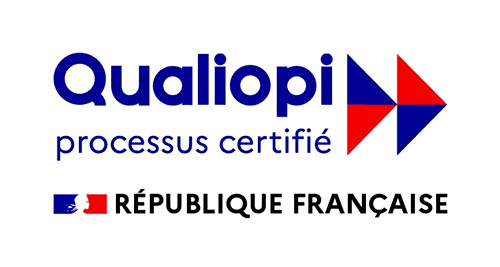
Le Bachelor of Arts Management hôtellerie et tourisme de l’AIM permet à l’étudiant déjà titulaire d’un diplôme Bac +2, d’intégrer l’école et d’obtenir en un an le titre de Bachelor validant ainsi le niveau Bac +3.
Il pourra ensuite, s'il le souhaite, intégrer le Master of Science en 2e année afin de compléter sa formation.
Cette année d’étude riche et intense lui permettra non seulement d’acquérir les connaissances indispensables à l'exercice de son futur métier de manager mais seront aussi la garantie pour l'employeur d'un savoir-faire et d'une expérience dont peut se prévaloir l'AIM depuis de nombreuses années.
Les mises en situation, jeux de rôle et expériences partagés par les enseignants, tous diplômés de grandes écoles et ayant évolué au sein des plus prestigieux établissements (Marriott, Concorde, Four Seasons, Hyatt...), garantissent à nos étudiants une expérience qui leur sera utile non seulement pour évoluer avec succès au sein de leur entreprise, mais tout au long de leur carrière.
Nota bene :
Un enseignement unique, exclusif et concret. Depuis 1992, nous transmettons aux étudiants et aux professionnels :
- l’excellence du savoir-faire à la française en matière de luxe et de service, en collaboration avec les palaces parisiens et l’école de cuisine Alain Ducasse.
Nota bene : les cours de cuisine sont possibles uniquement en deuxième année, lors du MSc2.
- l’excellence de l’art du management à l’international avec un programme professionnel :
Un contexte qui explique la grande facilité d’intégration dans ces établissements de nos diplômés, bénéficiaires de la version originale (en anglais) de ces formations dispensées par un corps enseignant hautement qualifié.
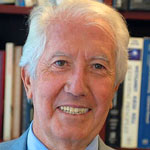 |
Patrick ROSIER |
| BAC +3
60 ECTS
180 ECTS |
BAC +4
60 ECTS
|
BAC +5
60 ECTS
|
|||||||||
|
|
|
|
E M P L O I |
|||||||

|
|||||||||||
Une année d'études supérieures intensives et spécialisées de haut niveau qui forment des cadres opérationnels pour les postes de responsabilités dans l'hôtellerie de luxe et le tourisme haut de gamme. Après un premier semestre de cours, les étudiants appliquent les enseignements reçus lors de stages opérationnels ou de management dans des établissements hôteliers basés en France ou à l'Etranger.
| oct. | nov. | déc. | janv. | févr. | mars | avr. | mai | juin | juill. | août | sept. | oct. | nov. | déc. |
| COURS | MANAGEMENT TRAINING * |
Vacances de Noël : 2 semaines selon le calendrier de l'Académie de Paris
Vacances d'hiver : 2 semaines selon le calendrier de l'Académie de Paris
*Management training : 6 mois en France, jusqu'à 8 mois à l'étranger
Les emplois du temps permettent l'exercice d'activités rémunératrices dans la limite de 20 h / semaine.
|
Modalités d'évaluation Les évaluations se font sur 6 critères : - Contrôles continus sous forme de quiz et tests rapides administrés régulièrement par les enseignants. |
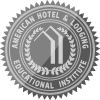
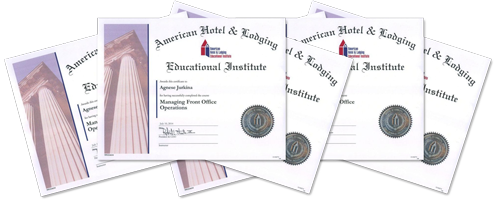
Le choix des matières et l'organisation des cours privilégient le développement des facultés d'analyse et de synthèse, qualités déterminantes pour l'apprentissage des procédés de décision dans un environnement d'une complexité croissante.
Applications dans l’industrie hôtelière les principaux modes de comptabilité financière.
Formation professionnelle destinée à tous ceux voulant exercer des responsabilités dans le domaine des Ressources Humaines au sein des grands hôtels.
This course provides students with practical skills and knowledge for effective management of food service operations. It presents basic service principles while emphasizing the importance of meeting and, whenever possible, exceeding the expectations of guests.
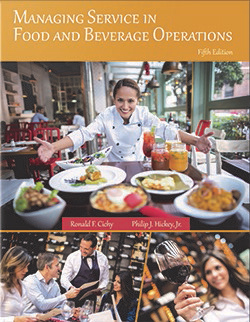
The Certification in Hotel Industry Analytics (CHIA), in cooperation with AHLEI, is the leading certification for undergraduate and graduate students, as well as professors, in Hospitality and Tourism programs. This recognition provides evidence of a thorough knowledge of the foundational metrics, definitions, formulas and methodologies that are used by the hotel industry. Recipients have proven that they can “do the math” and interpret the results. They have demonstrated an ability to analyze various types of hotel industry data and to make strategic inferences based upon that analysis. Certification also confirms a comprehensive understanding of benchmarking and performance reports that are used by industry professionals. Recipients have a grasp of the current landscape of the hotel industry, including relevant current events. Achieving this distinction announces that these students have a place among the best graduates in their profession and opens the doors to future career opportunities. Qualifying students receive a certificate of accomplishment. Their names and schools are listed on the American Hotel & Lodging Educational Institute (AHLEI) website and they can use the CHIA designation on their resume/CV and business cards.
The certification is based upon four core content areas:
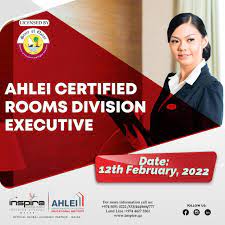
This course presents a systematic approach to managing Rooms Department in large and luxury international hotels by detailing the flow of business from the reservations process to check-out and account settlement. The course also examines the various elements of effective Housekeeping Management, paying particular attention to the planning and Human Resources Management.
[ TOPICS ]
 This course is designed to provide students with a solid background in hospitality sales and marketing. The main focus is on practical sales techniques for selling to targeted markets.
This course is designed to provide students with a solid background in hospitality sales and marketing. The main focus is on practical sales techniques for selling to targeted markets.
At the completion of this course, students should be able to:
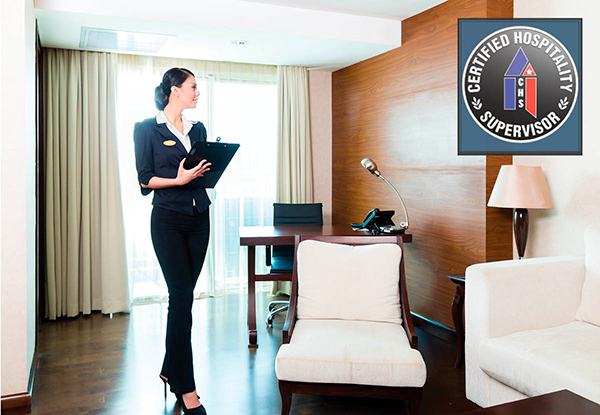
This course is designed to provide students with the principles of supervision as they apply specifically to the hospitality industry.
The purpose is to give students elementary knowledge & practice of management issues, including recruitment, training, performance evaluation, supervisory concerns, effective communication.
The students will learn & practice in class different techniques to be ready to face line-manager responsibilities in the first years of their career in the Hospitality Industry.
1. Identify fundamental supervisory responsibilities.
2. Explain the steps that supervisors can take to speak effectively on the job.
3. Describe how supervisors work with the human resources department to recruit new employees.
4. Explain the function of training within an organization and the supervisor's role in training.
5. Forecast business volume using the base adjustment forecasting method and the moving average forecasting method.
6. Distinguish coaching from counseling and disciplining.
7. Identify the components of a progressive disciplinary program.
8. List important laws and legal concerns that affect hospitality supervisors.
9. Describe issues supervisors should be aware of as they assume the role of team leader.
10. Explain how supervisors can increase employee participation in department activities.
11. Identify steps supervisors should follow during a meeting with employees in conflict.
12. Distinguish high-priority interruptions from low-priority interruptions, and summarize strategies for dealing with the latter.
13. Describe actions that supervisors can take to minimize employee resistance to change.
Explain why it is important for supervisors to take control of their personal development, and describe how to execute a career development plan.
At the end of the session, students should be in the position to:
N.B. : L'organisation de certains cours de management peut être modifiée en fonction du calendrier de certains "visiting professors".
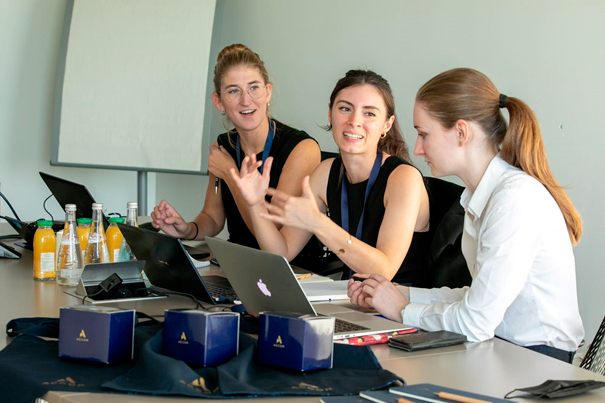
Des travaux d’équipes pour des projets concrets, avec des planifications rigoureuses
nécessitant des connaissances approfondies, toutes dispensées durant le programme.
Grâce à la carte d'accès à la Bibliothèque de la CIUP offerte par l'AIM, les étudiants ont la possibilité de se perfectionner dans la langue étrangère de leur choix parmi un catalogue de plus de 26 langues.
 Au sein du campus de la Cité Internationale Universitaire de Paris, l'Espace langues accueille les étudiants de l'AIM du lundi au vendredi et leur garantit d'excellentes conditions d'apprentissage des langues étrangères : langue générale, langue des affaires, grammaire, expression et compréhension écrite et orale, prononciation et perfectionnement.
Au sein du campus de la Cité Internationale Universitaire de Paris, l'Espace langues accueille les étudiants de l'AIM du lundi au vendredi et leur garantit d'excellentes conditions d'apprentissage des langues étrangères : langue générale, langue des affaires, grammaire, expression et compréhension écrite et orale, prononciation et perfectionnement.
Sont essentiellement dispensés par l'Espace langues :
français
anglais
espagnol
italien
portugais
turc
arabe
hébreu
chinois
farsi
ourdou
néerlandais
japonais
coréen
arménien
hindi
russe
grec
L'AIM bénéficie d'un partenariat avec l'association américaine AHLEI attestant que les formations dispensées à l'AIM répondent aux plus hauts standards internationaux en matière d’enseignement supérieur.
Particulièrement destinées aux professionnels en exercice afin d'élargir leurs connaissances, elles permettent à nos étudiants d'accéder rapidement aux emplois au niveau international selon leur profil.
L’AHLEI fait autorité dans le monde entier en matière de conseil et de mise en place des meilleurs outils de gestion dans les plus grandes chaînes hôtelières internationales.
Pour n’en citer qu’un, le Uniform System of Accounts for Hotels, plan comptable de l’industrie hôtelière qu'il a conçu et édité, est utilisé par tous les grands établissements, aussi bien en France qu’au niveau international.